, Mar 7, 2014
Solar SA de Ahorro y Finanzas (Savings and Finance) is a savings, loan, and financial services company with over 32 years’ experience in the Paraguayan financial market. It operates under the direct supervision of the Superintendency of Banks, contributes to the Guaranteed Deposits Fund of the Central Bank of Paraguay, and is also a member of the ADEFI (trade association).
The challenge
Solar had constructed a new building in order to move its head office. The main concern was that the move would not be seen by staff as having generated any significant improvements, given that certain services did not function adequately prior to the move. Many services were hampered by limitations of the routers in place at the agency/branch level, while other infrastructural deficiencies prevented service growth within the branches, which, in turn, precluded the implementation of increased security mechanisms.
The new building required infrastructure advanced enough to support all of the planned implementations. As such, the aim was much greater than simple one-off problem resolution; a technologically cutting-edge solution was chosen that would allow Solar to grow into the future.
The choice of service provider presented a great challenge. “What Logicalis presented was more serious, and more demonstrative of an understanding of the goal of our projects, of basically what we wanted to achieve. The challenge was finding a provider who would completely fulfill all of our expectations”, says Nadinhe Acuña, Corporate ICT and Accounting Manager at Solar SA.
The solution
The base solution proposed by Logicalis consisted of Cisco’s Unified Communications Manager Business Edition 6000, which is made up of a packet of unified communications systems designed specifically for small and medium businesses. The initial packet included Cisco Unified Communication Manager (CUCM) for call control, and Cisco Unity Connection (CUC) for unified Interactive Voice Response – IVR – messaging.
The end devices included in the solution were Cisco Jabber IP Phones with video, in line with Solar SA’s objective of promoting this type of communication within the company. The idea was to promote the deployment of the Jabber solution across different types of clients, either on PCs or mobile devices.
As part of the forward-looking strategy, the branch offices were equipped with Cisco 1861 routers which allow for the integration of CUCM with the conventional PBX and which provide connectivity with the head office.
Via this design and implementation during the first stage of the project, as well as providing a cutting-edge technological solution to the head office, Logicalis and Solar prepared a large part of the infrastructure for the final deployment of all the services across the whole company.
The benefits
The main benefits accrued were in the area of technology. A physical implementation was carried out which enabled systems intercommunication and operability with no negative impact on performance.
Although the employees –in the new building - and the Data Center -in the old main office- are now in different places, users enjoy a seamless experience thanks to the implementation carried out by Solar and Logicalis.
There used to be a gap in effectiveness between the head office and the agencies. The solution has eliminated that gap. “The Solar head office is now like we were in an agency. All of the main services are at the old head office, but no-one feels anything different. The same level of services has been maintained and to the user, it is as if we were connected locally on the same network as the Data Center. That is really very important to us”, states Nadinhe Acuña.
“The fact that we have found virtually no small details needing improvement post-move is also a big positive. Often on these projects you end up making adjustments to the implementation that sometimes take more time than the project itself. That is something that has not happened on this project”, adds César Rojas, deputy manager of infrastructure at Solar.
According to Acuña, “Tech implementations are often painful. Problems come up along the way, service cuts are common, and total solution implementation time cannot even be estimated. When you have a clear vision of the damage this can cause, you realize just how serious an impact it can have on the business in many ways, not only on one department or one person who cannot work. The impact is economic, it affects times established for projects, and it affects department and area goals. It is a negative impact chain reaction; avoiding all of that was the real success in this case.”
Conteúdos relacionados
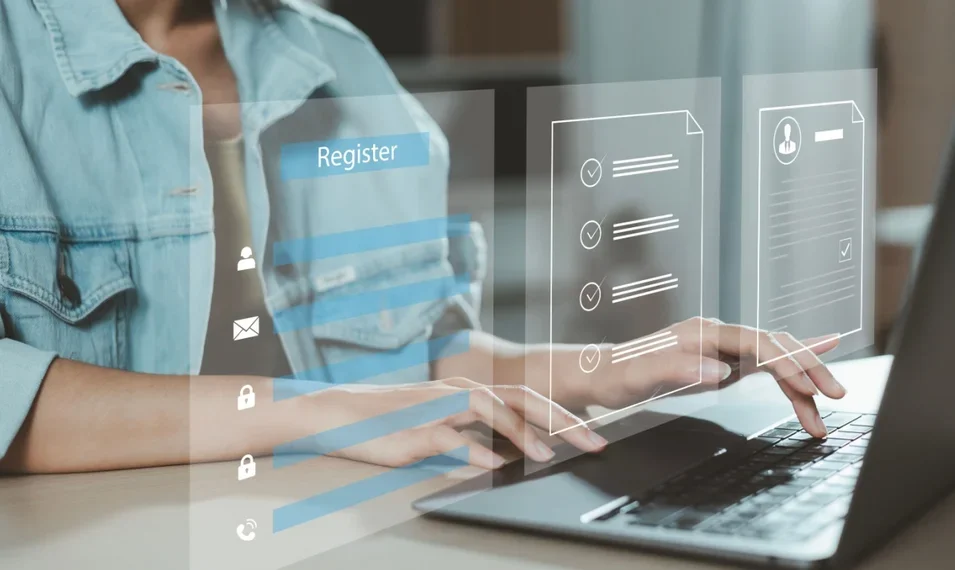
Brazil , Jul 10, 2025
Com assistente virtual, Algar reduz 30% do tempo médio de atendimento ao cliente corporativo
WhatsApp passou a representar 63% das interações no segmento corporativo com o suporte da assistente virtual Ana, desenvolvida em parceria com a Logicalis
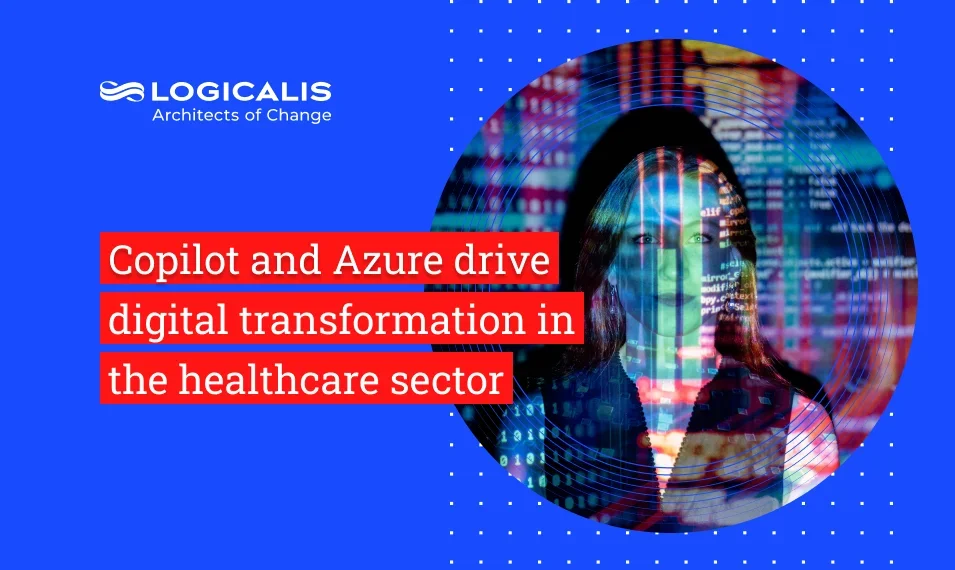
Latin and South America , Jun 30, 2025
Copilot e Azure impulsiona transformação digital no setor de saúde
Logicalis lidera projeto estratégico com foco em segurança, governança e inovação
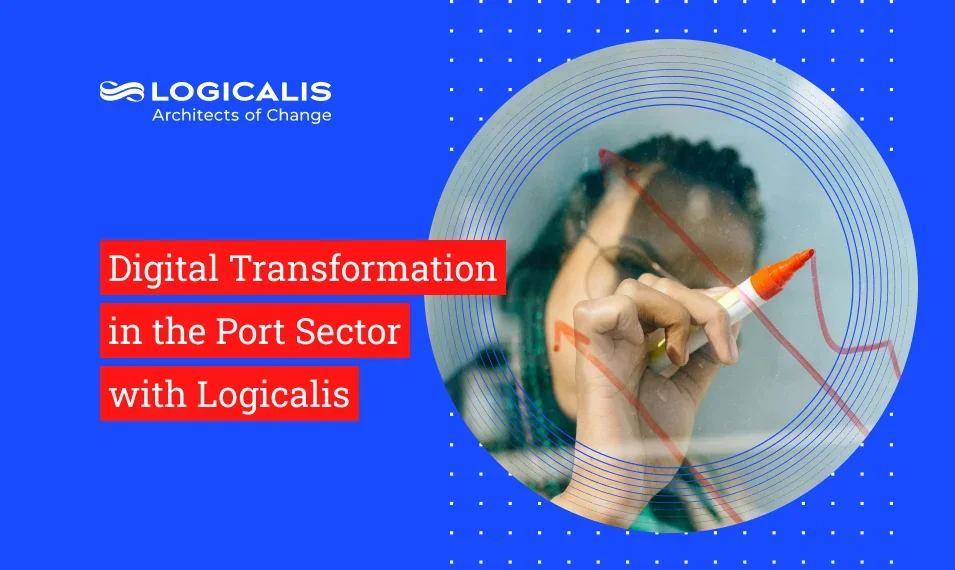
Latin and South America , Jun 24, 2025
Transformação Digital no Setor Portuário com a Logicalis
Com o apoio da Logicalis, a organização superou limitações operacionais, reduziu custos e impulsionou a inovação ao migrar 6 TB de dados para o Microsoft 365.
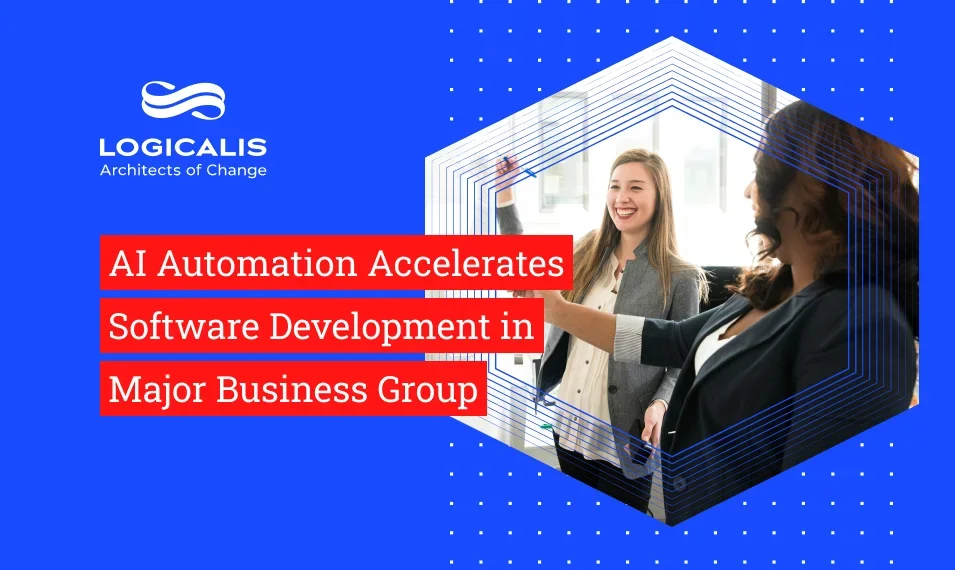
Latin and South America , Jun 16, 2025
Automação com IA acelera desenvolvimento de software em grande grupo empresarial
Logicalis implementa GitHub Copilot e Microsoft 365 Copilot para impulsionar produtividade, segurança e colaboração entre desenvolvedores.
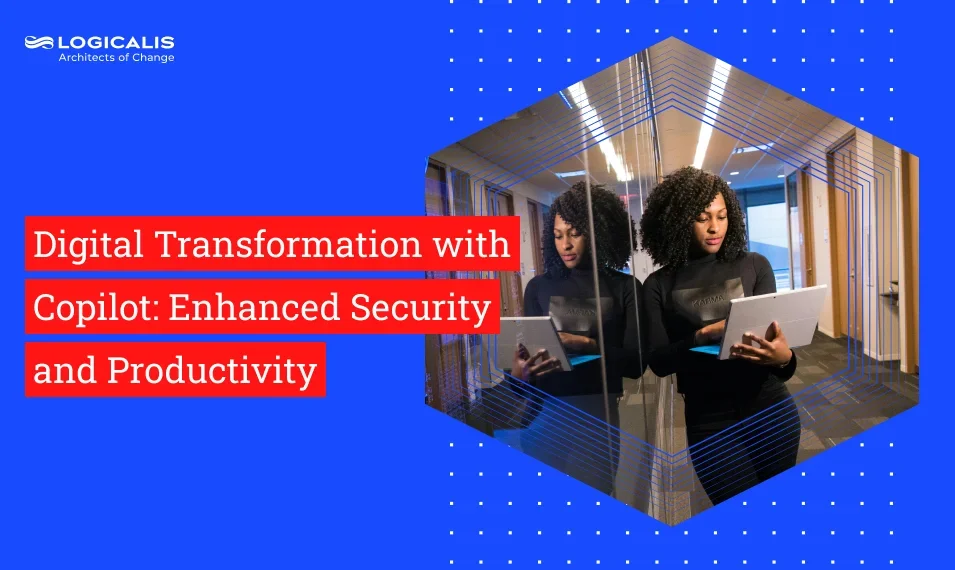
Latin and South America , Jun 13, 2025
Transformação Digital com Microsoft 365 e Copilot: Segurança e Produtividade em Alta
Concessionária multinacional acelera sua transformação digital com Microsoft 365 e Copilot, unificando segurança e produtividade. Descubra como a integração das soluções otimizou operações globais.
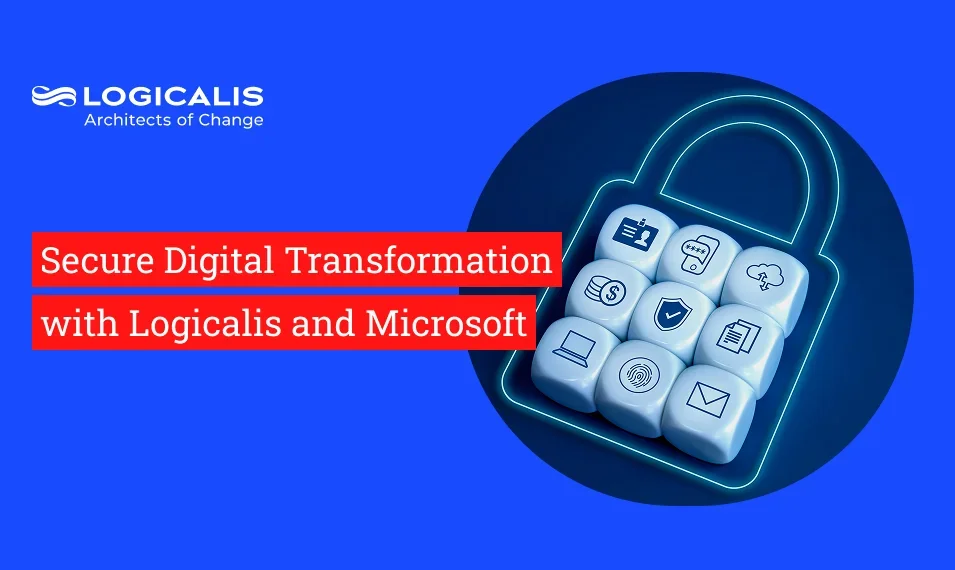
Latin and South America , Jun 3, 2025
Transformação Digital Segura com Logicalis e Microsoft
Uma empresa chilena do setor de segurança do trabalho e capacitação decidiu iniciar uma jornada de transformação digital com foco em segurança da informação com o apoio da Logicalis e da Microsoft
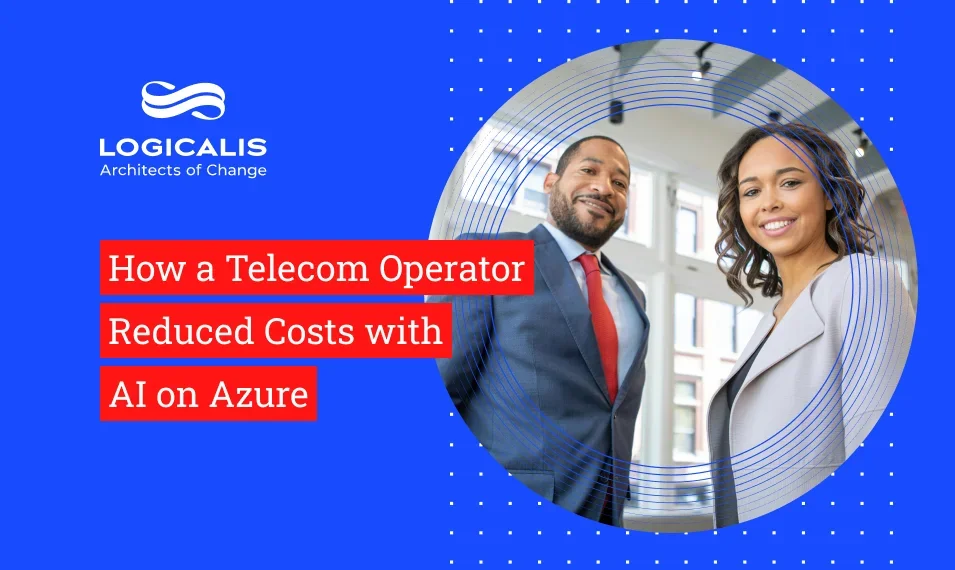
Brazil , May 27, 2025
Como Operadora Reduziu Custos com IA na Azure
Empresa enfrentava desafios de emissão da primeira fatura para clientes corporativos e, para isso, contou com o apoio da Logicalis para desenvolver uma solução personalizada.

Brazil , May 20, 2025
Plataforma de Créditos de Carbono na Azure Impulsiona Sustentabilidade no Brasil
Uma das principais instituições de infraestrutura do mercado financeiro brasileiro anunciou a criação de uma plataforma oficial para negociação de créditos de carbono e, para isso, contou com a parceria da Logicalis

Brazil , May 13, 2025
Implementação de 10.000 Licenças Microsoft Governance ID em Grande Operadora no México
A Logicalis foi acionada para liderar a transformação da governança de identidades da operadora, com o objetivo de entregar uma solução segura, escalável e alinhada às exigências do negócio.
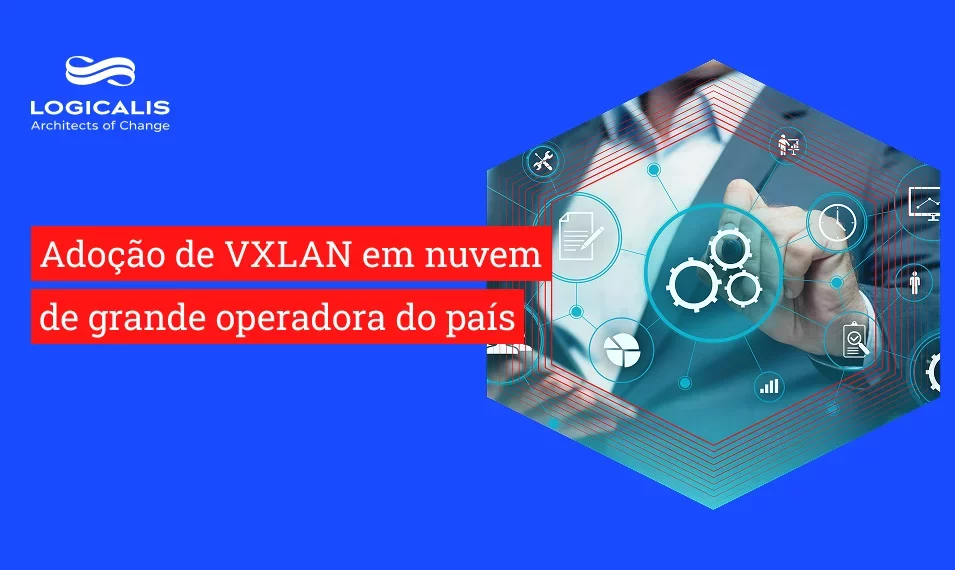
Brazil , Mar 27, 2025
Logicalis implementa VXLAN em nuvem de grande operadora
Operadora contou com o apoio da Logicalis para implementar nova solução de disaster recovery.
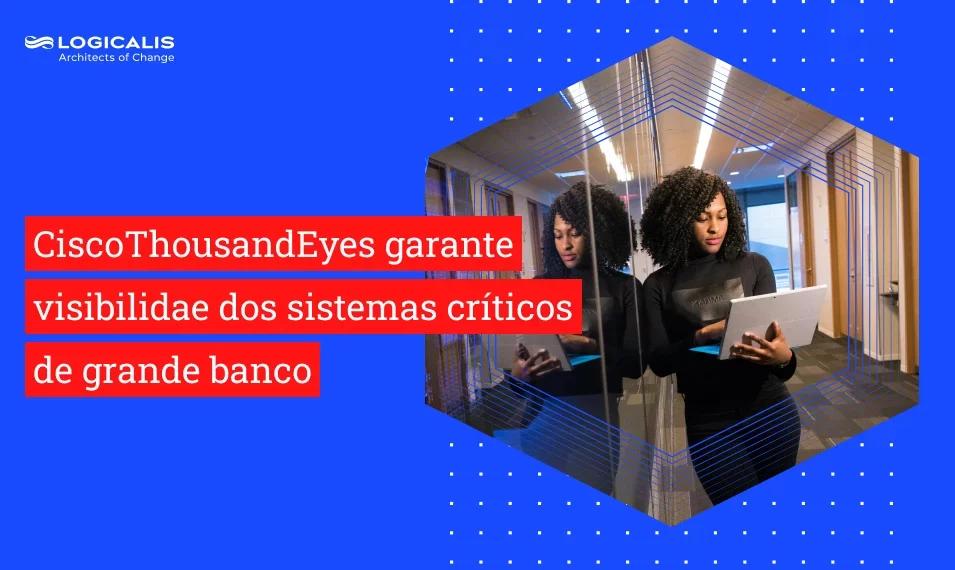
Brazil , Mar 25, 2025
Tecnologia CiscoThousand Eyes garante a visibilidade dos sistemas críticos de banco privado
Grande banco privado precisava intensificar seu monitoramento de ambiente e, para isso, contou com a parceria da Logicalis e da Cisco.
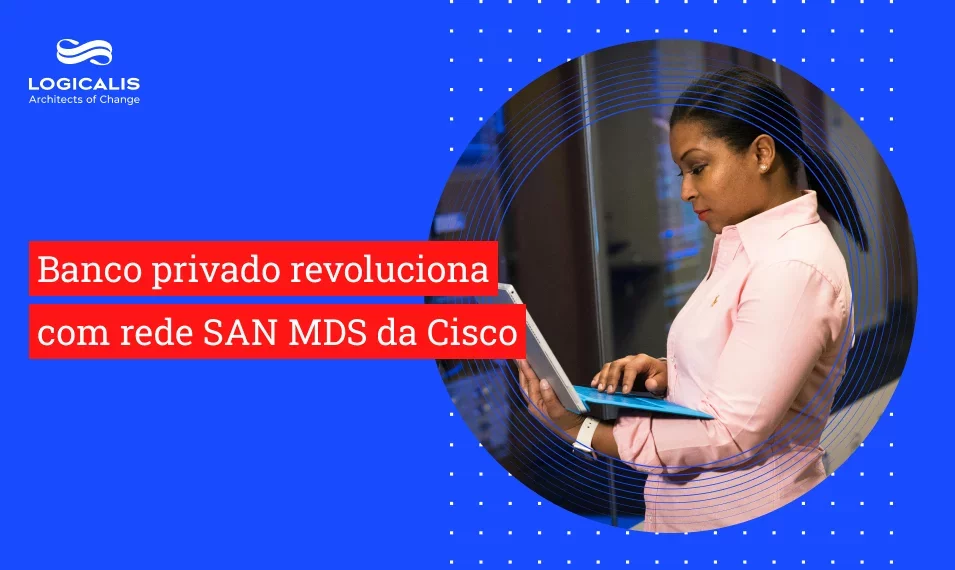
Brazil , Mar 25, 2025
Banco privado revoluciona arquitetura com rede SAN MDS da Cisco
Uma importante instituição financeira precisava de uma tecnologia-chave capaz de suportar crescimento e ganhos importantes em agilidade, integração e inovação e, para isso, contou com o apoio da Logicalis.
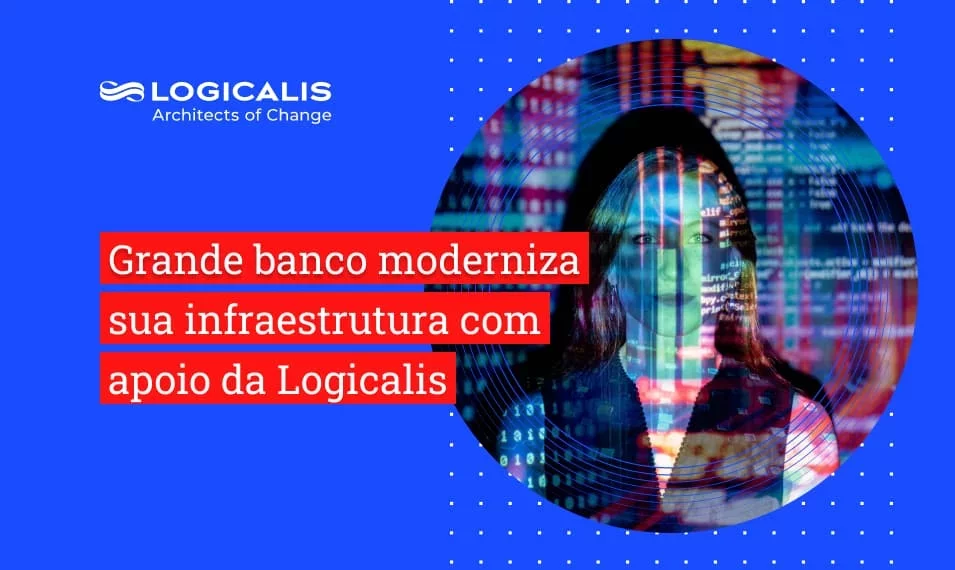
Brazil , Mar 20, 2025
Análise das infraestruturas de data centers de banco privado revela estrada para futuro
Instituição financeira tinha a demanda de atualizar seu ambiente de data center e, para isso, contou com a parceria da Logicalis.
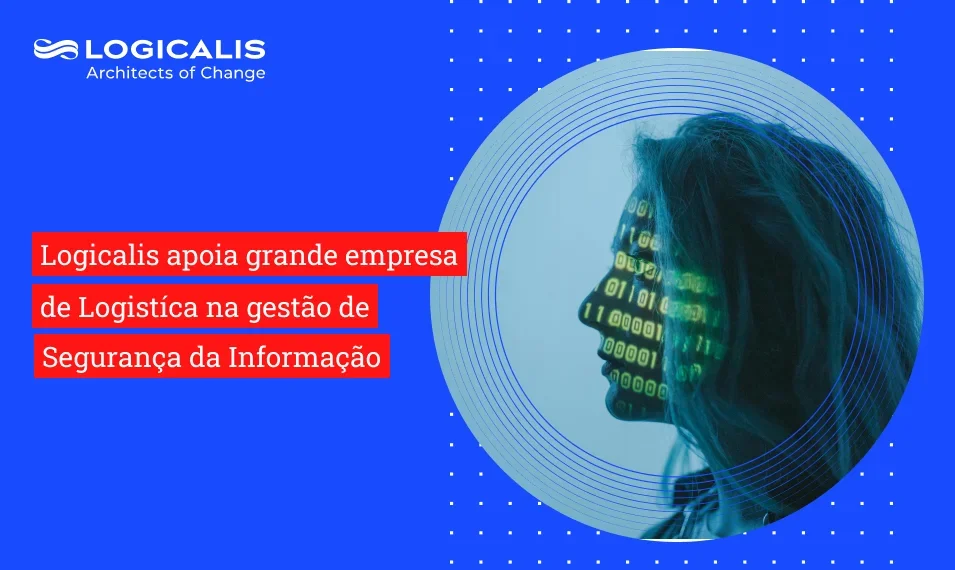
Brazil , Feb 25, 2025
Logicalis apoia grande empresa de logística na governança de segurança da informação
Empresa tinha a demanda de aprimorar a sua governança e a maturidade geral da segurança e, para isso, contou com a parceria da Logicalis.

Brazil , Feb 18, 2025
Logicalis implementa conectividade como serviço em grande produtor de fertilizantes
Empresa tinha o desafio de implementar conectividade em sua operação de varejo e, para isso, contou com a parceria da Logicalis.

Brazil , Feb 11, 2025
EAF automatiza e padroniza processos com apoio da Logicalis
Com mais de 20 fluxos automatizados, Entidade Administradora da Faixa viabiliza a geração automática de relatórios de conformidade e aumenta eficiência na execução de suas obrigações

Brazil , Feb 4, 2025
Logicalis apoia rede de farmácias em jornada de resposta a incidentes de segurança
Rede de farmácia tinha a missão de aumentar o nível de maturidade das práticas e processos de resposta a incidentes de segurança da informação e, para isso, contou com a parceria da Logicalis.
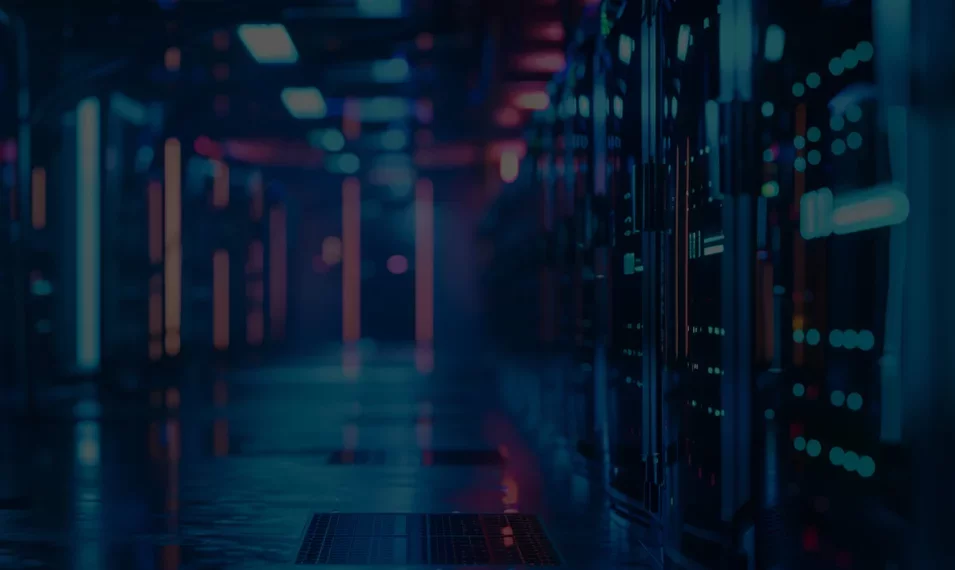
Brazil , Jan 13, 2025
Importante player do mercado de ações moderniza seu parque de equipamentos com Cisco
A companhia tinha o desafio de realizar o refresh sem causar impactos na continuidade do negócio e, para isso, contou com a parceria da Logicalis.

Brazil , Oct 16, 2024
Logicalis ajuda grande operadora a restabelecer serviços no RS durante as enchentes
A Logicalis foi acionada para montar um plano de emergência que garantisse o retorno das operações o mais rapidamente possível.

Brazil , Sep 17, 2024
Logicalis renova licenças Microsoft em grande operadora de telefonia celular
Operadora tinha a demanda de reavaliar seu parque de licenças Microsoft, com o objetivo de adequar seu contrato levando em conta as atualizações tecnológicas que poderiam ser utilizadas em favor do negócio
Brazil , Sep 2, 2024
Com IA, Algar Telecom reduz tempo de análise de primeiras faturas em 96% e aumenta assertividade
Billy, uma hiperautomação com IA generativa e RPA, reduziu o tempo de conferência de faturas de 31 minutos para apenas um minuto

Brazil , Aug 19, 2024
Logicalis implementa IA generativa para conciliação contábil em grande operadora de telecom
O time da Logicalis desenvolveu uma ferramenta baseada no OpenAI a partir da nuvem Microsoft Azure para operadora.

Brazil , Aug 12, 2024
Logicalis cria solução de IA generativa para acelerar decisões em grande operadora celular
Companhia tinha a demanda de simplificar o processo e transformar a consulta aos dashboards em algo mais natural e, para isso, contou com a parceria da Logicalis, que desenvolveu um agente de inteligência artificial (IA) generativa.

Brazil , Aug 5, 2024
Logicalis implementa agente de IA na área de TI de um dos maiores bancos do Brasil
Após uma apresentação feita pela Logicalis sobre o potencial de uso da inteligência artificial generativa, a área de TI de uma instituição financeira viu a possibilidade de uso na revisão de códigos

Brazil , Jul 31, 2024
Com agente de IA generativa implementado pela Logicalis, operadora de telecom responde editais com mais velocidade
Companhia enfrentava o desafio de melhorar o processo de resposta aos editais e, para isso, contou com o apoio da Logicalis.

México , Jul 30, 2024
Rede de restaurantes na América Latina reduz 80% o tempo de entrega com Windows Autopilot
Com o apoio da Logicalis, a empresa automatizou a criação de perfis de usuários e políticas de segurança, reduzindo o processo de mais de 1 hora e 30 minutos para apenas 20 minutos.

Argentina , Jul 30, 2024
A empresa petroquímica expande seu ambiente Microsoft com o apoio da Logicalis
Logicalis ajudou o cliente na renovação e atualização de aproximadamente 400 licenças do Microsoft 365, otimizando recursos de segurança e controle de acesso.

México , Jul 25, 2024
Grande rede hoteleira no México migra para ambiente colaborativo para Microsoft
Após análise detalhada dos recursos pela equipe da Logicalis, o cliente decidiu evoluir seu ambiente e centralizar todos os serviços na plataforma da Microsoft

Paraguay , Jul 24, 2024
Com o apoio da Logicalis, mais de mil licenças Cloud M365 foram mantidas em grande banco do Paraguai
A Logicalis conseguiu renovar o contrato Microsoft do banco, implementando soluções colaborativas, além de serviços de gerenciamento e configuração de licenças para SQL Server, Windows Server e toda a suíte Microsoft 365 Enterprise

Paraguay , Jul 23, 2024
Redesenho na Arquitetura de Redes e Aplicações mantém gigante farmacêutico como cliente do Azure
a Logicalis redesenhou toda a arquitetura dos sistemas da empresa e migrou todos os seus recursos do data center dos EUA para o Brasil

Brazil , Jul 17, 2024
Logicalis implementa solução de colaboração como serviço em indústria de alimentos
Empresa tinha demanda de readaptar às soluções de videoconferência existentes nas salas de reunião de seus escritórios.
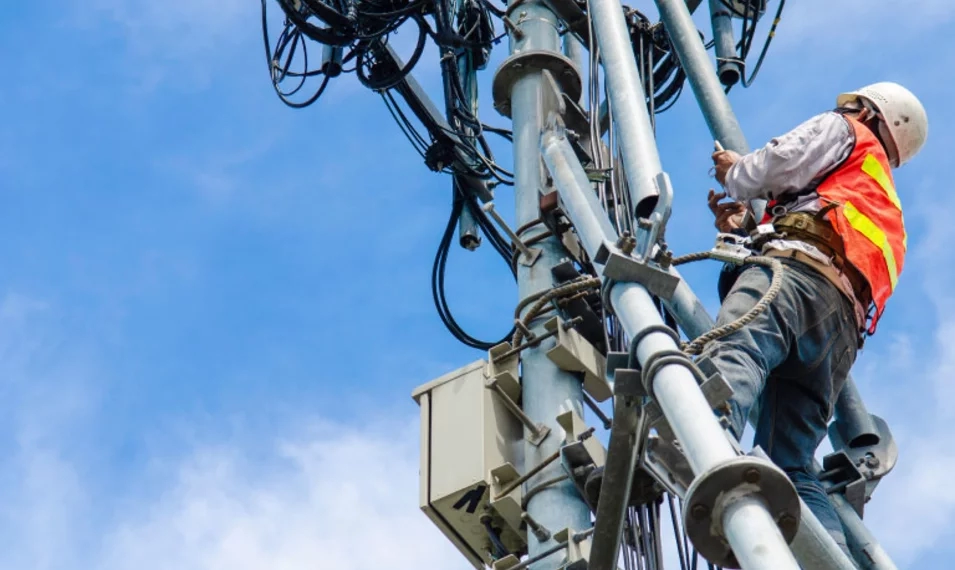
Brazil , Jul 5, 2024
Parceria entre EAF e Logicalis aprimora processos da entidade
Consultoria envolveu revisão de processos para ganhar eficiência nas atividades relacionadas à migração do sinal de TV

Brazil , Jun 24, 2024
Logicalis apoia sustentação de rede AMI de grande distribuidora de energia
Companhia precisava assegurar a sustentação, a gestão e a disponibilidade de todos os elementos de sua rede AMI e, para isso, contou com o apoio da Logicalis

Brazil , Jun 13, 2024
Logicalis assume sustentação de cloud em um dos maiores fornecedores de rede neutra do país
Empresa estava em busca de um parceiro que fornecesse serviços gerenciados em nuvem, com proatividade em relação ao monitoramento, maior visibilidade de custos e recursos e, principalmente, sua otimização
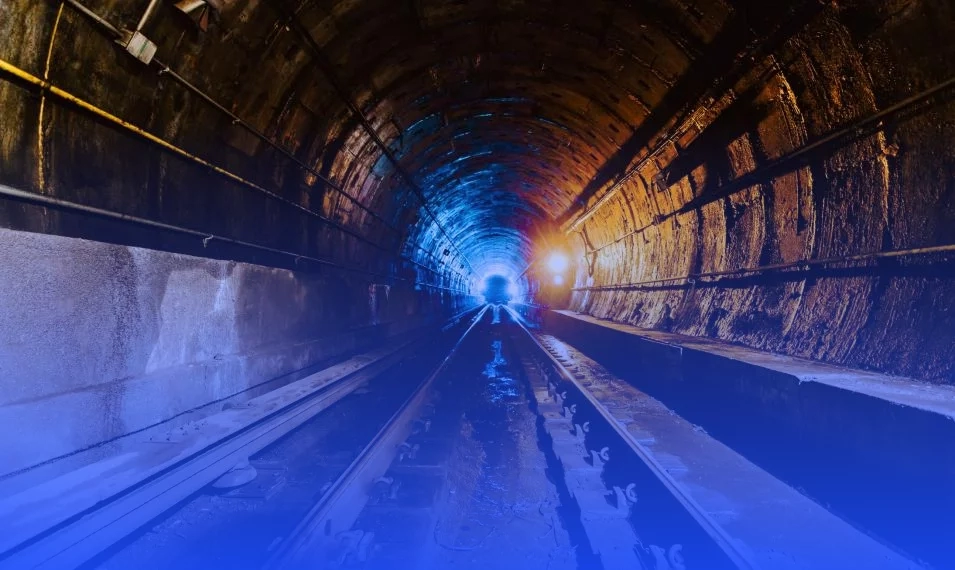
Brazil , May 29, 2024
Logicalis melhora experiência digital de colaboradores de mineradora com Cisco ThousandEyes
Em sua terceira renovação, contrato prevê a utilização da solução por 300 usuários, garantindo a melhor experiência de uso do Microsoft Teams

Brazil , May 14, 2024
Logicalis amplia fornecimento de solução de segurança para grande rede hospitalar brasileira
Companhia tinha a necessidade de expandir o número de licenças da Cisco Umbrella e, para isso, contou com a parceria da Logicalis.
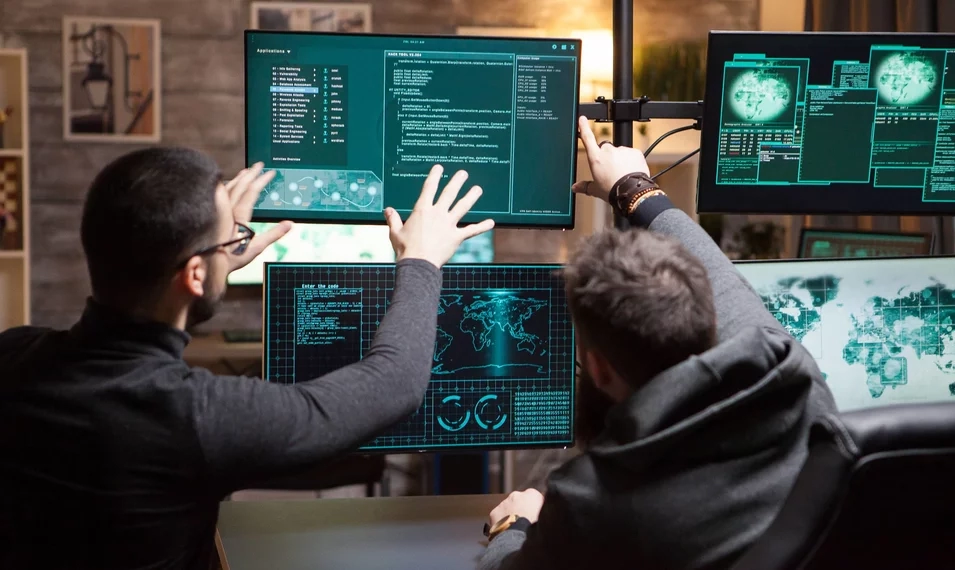
Brazil , Apr 16, 2024
Logicalis implementa serviço de Red Team em grande rede atacadista brasileira
Companhia tinha a necessidade de tornar os pentests um serviço continuado e, para isso, contou com o apoio da Logicalis

Brazil , Mar 20, 2024
Grande empresa de telecomunicação reforça segurança com Microsoft 365 EMS E3
A companhia necessitava adotar funcionalidades de criptografia e gestão de devices e, para isso, contou com o apoio da Logicalis e da Microsoft

Brazil , Mar 14, 2024
Grande produtor de açúcar reforça segurança com apoio da Logicalis e Microsoft
Sempre buscando aprimorar a proteção de sua infraestrutura, a companhia contou com o apoio da Logicalis para adotar a solução Microsoft 365 E5 Security

Brazil , Mar 12, 2024
Com Microsoft Azure, Logicalis apoia grande hospital na modernização de seu ambiente
Instituição precisava modernizar seu ambiente e para isso contou com a parceria da Logicalis e da Microsoft Azure.

Brazil , Mar 11, 2024
Operadora conta com solução de IA generativa desenvolvida pela Logicalis em Azure OpenAI

Brazil , Mar 5, 2024
Logicalis desenvolve bot baseado em IA Generativa para empresa de serviços de TI
Empresa tinha o desafio de reduzir as quebras no atendimento, geralmente causadas por conta da morosidade no atendimento aos clientes

Brazil , Feb 27, 2024
Mineradora adota ThousandEyes e aprimora experiência dos usuários
Implementada pela Logicalis, solução garante a utilização de aplicações em nuvem para cerca de 2,5 mil usuários da companhia

Brazil , Feb 21, 2024
Sicredi atualiza infraestrutura de rede com uso de SD-WAN
Realizado pela Logicalis, projeto atualizou a tecnologia utilizada pelas mais de três mil agências da cooperativa de crédito

Brazil , Jan 23, 2024
Logicalis mapeia segurança de redes 5G, fixa e móvel de uma das maiores operadoras do Brasil
Operadora vinha enfrentando o desafio de compreender a infraestrutura, os processos e os sistemas de segurança por trás de suas redes e, para isso, contou com o apoio da Logicalis.

Brazil , Jan 19, 2024
SKF moderniza sua infraestrutura na nuvem com o apoio da Logicalis e da Kumulus

Brazil , Jan 19, 2024
Logicalis e AWS suportam uma grande rede de supermercados no gerenciamento de seu ambiente virtual

Brazil , Jan 16, 2024
Mineradora reduz custos e eleva resiliência de rede com apoio da Logicalis e Cisco
Uma grande mineradora vinha enfrentando desafios para manter sua grande rede computacional sempre atualizada e, para isso, contou com o apoio da Logicalis e da Cisco

Brazil , Jan 9, 2024
Com apoio da Logicalis, fabricante de motos fortalece estratégia de segurança contra ransomware
Logicalis apoia fabricante na construção de um playbook para respostas a incidentes de ransomware.

Brazil , Dec 12, 2023
Logicalis consolida parque de storage de uma das maiores empresas de Telecom do Brasil
Uma das maiores empresas de telecomunicações e serviços de TI do Brasil tinha a demanda de refresh de alguns equipamentos de armazenamento de seu data center e, para isso, contou com a parceria da Logicalis.

Brazil , Dec 5, 2023
Logicalis gerencia ciclo de vida da infraestrutura de rede de dados e segurança de banco brasileiro
O banco tem uma alta criticidade em relação aos chamados abertos e enfrentava o desafio de atendê-los o mais rapidamente possível sem prejuízo às suas operações e ao atendimento aos clientes e, para isso, contou com o apoio da Logicalis.

Brazil , Nov 30, 2023
Logicalis implementa NOC SEC em grande operadora nacional de telecomunicações
Em pleno processo de expansão, uma das maiores operadoras de telecomunicações do país tinha a demanda de implementar duas infraestruturas de rede para seu NOC SEC corporativo em dois novos prédios e, para isso, contou com o apoio da Logicalis.

Brazil , Nov 22, 2023
Logicalis padroniza plataforma de duplo fator de autenticação para grande operadora brasileira
Empresa tinha o objetivo de unificar suas três soluções com o conceito de segurança Zero Trust e a LGPD (Lei Geral de Proteção de Dados).

Brazil , Nov 14, 2023
Logicalis desenvolve landing zone para empresa do mercado financeiro
Companhia tinha a demanda de modernizar e ampliar a utilização de sua API e, para isso, contou com o apoio da Logicalis para criar uma landing zone na nuvem que suportasse a solução.
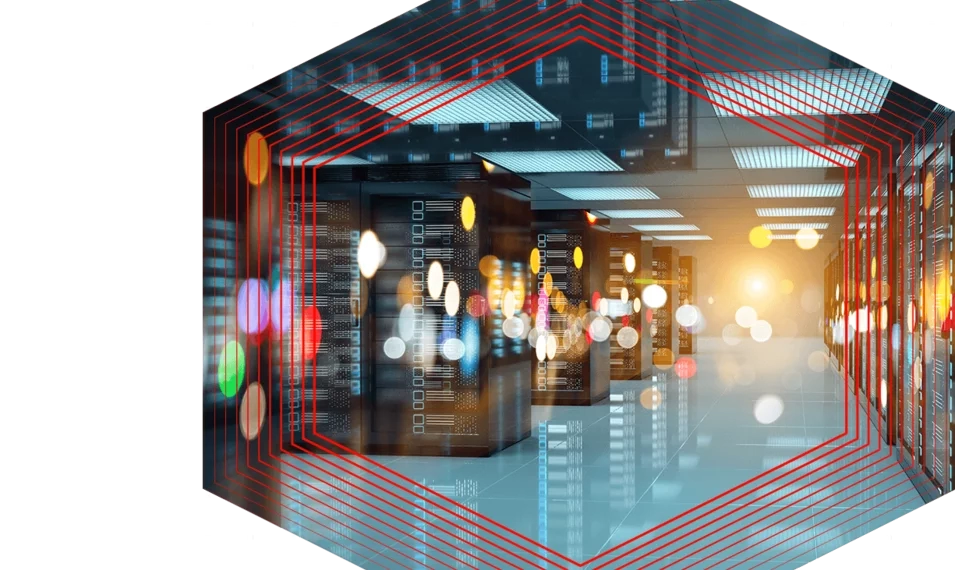
Brazil , Nov 7, 2023
Empresa de eletrodomésticos moderniza seu ambiente de armazenamento com apoio da Logicalis
Companhia precisava modernizar seu ambiente de armazenamento com uma tecnologia capaz de aumentar a escalabilidade e a segurança, e que preservasse o máximo possível dos investimentos realizados com essa nova aquisição.
Brazil , Oct 25, 2023
Logicalis moderniza ambiente de colaboração de uma grande usina de energia
Como parte de sua estratégia de modernização da estrutura tecnológica, uma grande usina de energia deu início a um projeto focado na atualização de seu ambiente de colaboração e contou com a parceria da Logicalis
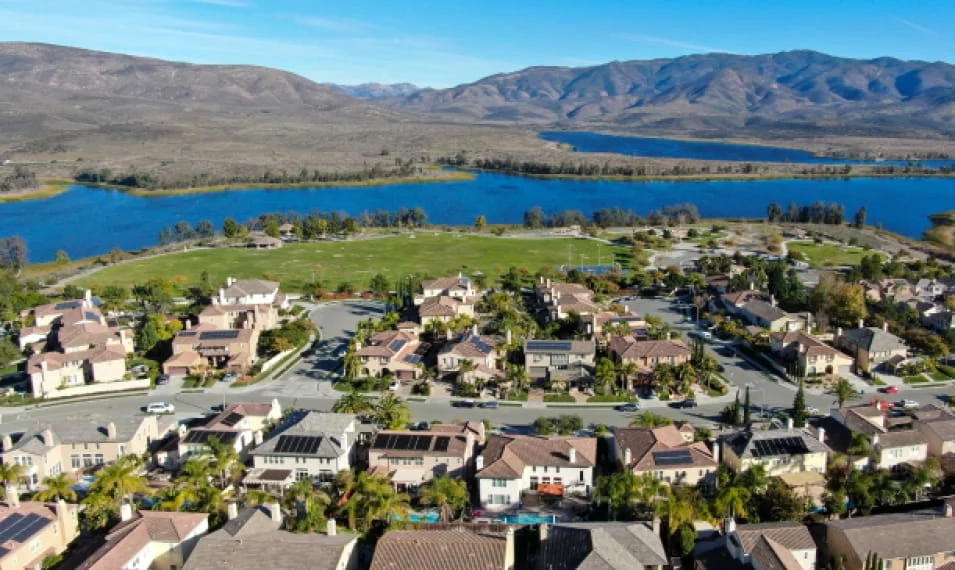
Brazil , Oct 10, 2023
Capacitando a transformação operacional: um estudo de caso de um condado progressista nos EUA
Enfrentando desafios com uma infraestrutura de rede envelhecida e uma equipe de rede reduzida (de 6 funcionários para 2), o condado buscou modernizar seu modelo de entrega de serviços operacionais para garantir cobertura de rede 24x7x365 e melhorar a segurança.

Brazil , Oct 10, 2023
Avançando a transformação sustentável de instalações: um estudo de caso com uma grande empresa de energia
Este estudo de caso destaca a colaboração entre a Logicalis e uma proeminente empresa de energia para modernizar edifícios, aprimorar a eficiência operacional e promover a sustentabilidade.

Brazil , Oct 10, 2023
Capacitando o crescimento: uma colaboração de sucesso com uma empresa global de fornecimento de energia
Um trader de energia marítima apoiado por uma empresa de serviços públicos global tinha como objetivo expandir suas operações em 50% nos próximos três anos. No entanto, a falta de uma base de custos previsível e processos padronizados representava desafios para alcançar esse objetivo. A Logicalis ofereceu um contrato de serviços gerenciados para resolver essas questões, permitindo que o cliente alcançasse seus objetivos e criasse novas oportunidades para a Logicalis nos setores de local de trabalho moderno e segurança.

Brazil , Oct 10, 2023
Aprimorando a eficiência da rede de um fabricante global de automóveis
Trabalhando com um proeminente fabricante automobilístico multinacional que possui uma vasta força de trabalho distribuída por mais de 25 países, a Logicalis recebeu a responsabilidade de otimizar sua conectividade, garantir resiliência de rede e aprimorar a visibilidade do desempenho de aplicativos.

Brazil , Oct 4, 2023
Logicalis apoia desenvolvimento de solução antifraude da Quod
Plataforma, que adota tecnologia de Realtime Analytics rodando em ambiente de nuvem AWS, tem capacidade para processar bilhões de transações por mês

Brazil , Oct 4, 2023
Logicalis assume monitoramento de nuvem de uma das maiores seguradoras do País
Serviço permitiu aprimorar a gestão da segurança e ampliar o controle de custos

Brazil , Oct 4, 2023
Logicalis migra plataforma de e-mail marketing de banco global para nuvem AWS
Com o serviço, centralizado em uma solução única que suporta o envio de mais de 2 milhões de e-mails por mês, o processo de comunicação com os clientes foi aprimorado

Brazil , Sep 4, 2023
Logicalis assume projeto de centralização de sistema de telefonia de grande banco brasileiro
Um dos maiores bancos do Brasil estava em busca de reduzir seus gastos com telefonia e, para isso, contou com o apoio da Logicalis.

Brazil , Sep 4, 2023
Logicalis garante manutenção contínua de mais de 30 sites de um dos maiores hospitais do país
Hospital tinha a demanda de garantir o desenvolvimento contínuo de seu 30 sites e, para isso, contou com o apoio da Logicalis

Brazil , Sep 4, 2023
Logicalis apoia empresa de assistência médica na conscientização de seus profissionais sobre segurança da informação
A empresa tinha o desafio de evoluir o processo de conscientização de seus profissionais sobre segurança da informação e, para isso, contou com o apoio da Logicalis.

Brazil , Aug 30, 2023
Com NOC Logicalis, empresa especializada em compra e gestão de créditos amplia disponibilidade de sistemas e reduz custos
Uma empresa especializada em compra e gestão de créditos estava enfrentando obstáculos para manter a disponibilidade de sua principal plataforma integrada de cobrança. Para este desafio, a empresa contou com o apoio da Logicalis

Brazil , Aug 29, 2023
Logicalis assume gestão de projetos de cloud de grande mineradora
Com o crescimento do uso da nuvem, a empresa passou a contar com diversos parceiros diferentes, o que acarretou o aumento da complexidade de gerenciamento e execução dos projetos.

Brazil , Aug 22, 2023
Gigante varejista transforma rede de mais de 300 lojas ao utilizar tecnologia SD-WAN para reduzir custos
Empresa precisava construir uma arquitetura tecnológica padronizada, que proporcionasse excelência em conectividade para toda sua a rede lojista, com mais segurança e velocidade nas transações.

Brazil , Aug 15, 2023
Empresa de pagamentos reduz em até 45% o tempo de resolução de problemas com apoio da Logicalis
A empresa precisava de um parceiro capaz de realizar o suporte de toda a sua arquitetura de rede e de data center, com múltiplos fabricantes e atendimento 24h e, para isso, contou com a parceria da Logicalis.

Brazil , Aug 10, 2023
Logicalis apoia uma grande cooperativa de crédito na evolução de sua infraestrutura de rede
A empresa precisava atualizar sua infraestrutura de rede e, para isso, contou com a parceria da Logicalis.
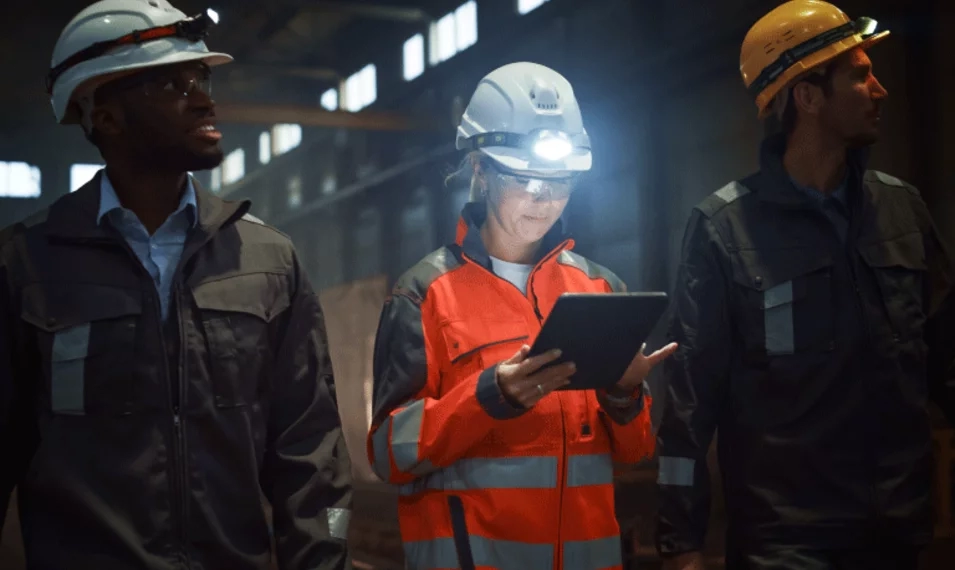
Brazil , Aug 3, 2023
Logicalis apoia melhoria de gestão de processos de tecnologia em mineradora
Após passar por algumas reestruturações na área de tecnologia, uma mineradora vinha enfrentando o desafio de integrar as principais informações do portfólio de projetos e para apoiá-la nesta demanda, a empresa contou com a parceria da Logicalis.

Brazil , Jul 27, 2023
Grande operadora de telecomunicação adota serviços gerenciados Logicalis para ambiente Azure
Após migrar seu ambiente de data analytics para a nuvem, empresa tinha o desafio de começar a operar o novo ambiente sem impactos em sua operação ou em sua equipe e, para isso, contou com o apoio da Logicalis.

Brazil , Jul 18, 2023
Operadora ganha eficiência no controle de custos na nuvem com solução de FinOps
Empresa tinha o desafio de ter sob total controle os custos da nuvem para otimizá-los e tornar a operação mais eficiente e, para isso, contou com o apoio da Logicalis

Brazil , Jul 12, 2023
Logicalis implementa conectividade como serviço em grande cooperativa médica
Companhia estava em pleno processo de modernização e atualização de sua estrutura de TI, com foco na atualização de sua solução de conectividade

Brazil , Jul 4, 2023
Logicalis suporta a gestão de consumo de cloud de uma grande instituição financeira
Com as mudanças internas, o banco intensificou o uso da nuvem e o ampliou o uso de serviços de análise de dados em oito vezes, o que fez com que a instituição esgotasse os créditos adquiridos.

Brazil , Jun 27, 2023
Operadora logística aprimora gestão da nuvem com o apoio da Logicalis
A empresa precisava levar seus sistemas para um ambiente que lhe desse flexibilidade para inovar e otimizar seus processos de negócio

Brazil , Jun 20, 2023
Logicalis implementa solução de segurança em uma das maiores siderúrgicas da América Latina
Companhia tinha o desafio de aprimorar seu ambiente de segurança e, para isso, contou com o apoio da Logicalis.

Brazil , Jun 13, 2023
Logicalis apoia a implementação de rede de telecom em projeto de grande mineradora
Logicalis apoia uma grande integradora de energia na implementação do escopo de telecomunicação que abrange os switches de conexão da mineradora.

Brazil , Jun 6, 2023
Logicalis implementa solução de segurança em grande varejista brasileiro
O varejista tinha o desafio de integrar e unificar os acessos dos seus profissionais nos mais diferentes sistemas da companhia a fim de melhorar a segurança do ambiente.
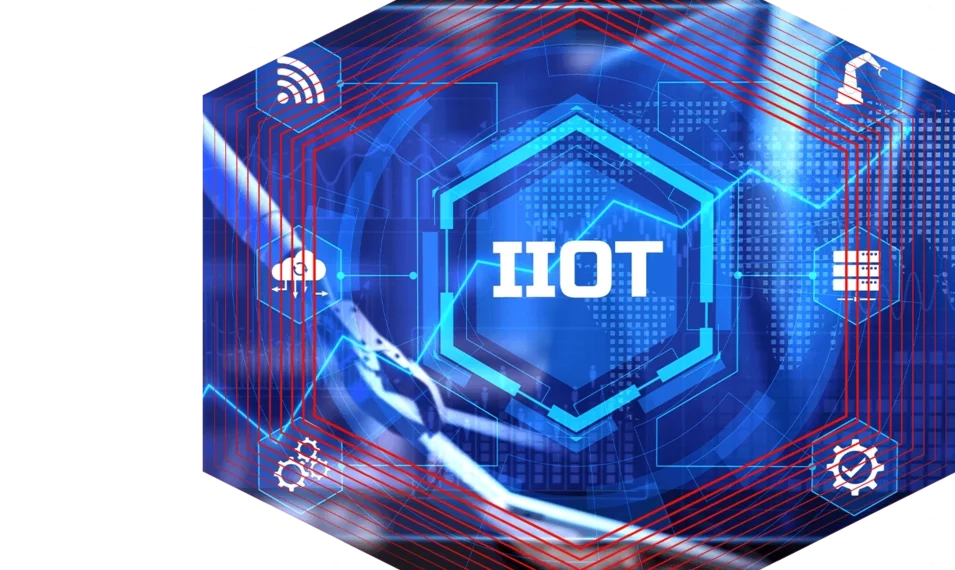
Brazil , May 30, 2023
Com solução de rastreamento, Logicalis aprimora segurança de grande siderúrgica
Empresa estava em busca de uma solução que aprimorasse seu processo de segurança do trabalho e, para isso, contou com o apoio da Logicalis.

Brazil , May 23, 2023
Logicalis renova parque de storage de grande varejista brasileiro
Varejista necessitada atualizar seu parque de storage e, para isso, contou com a parceria da Logicalis
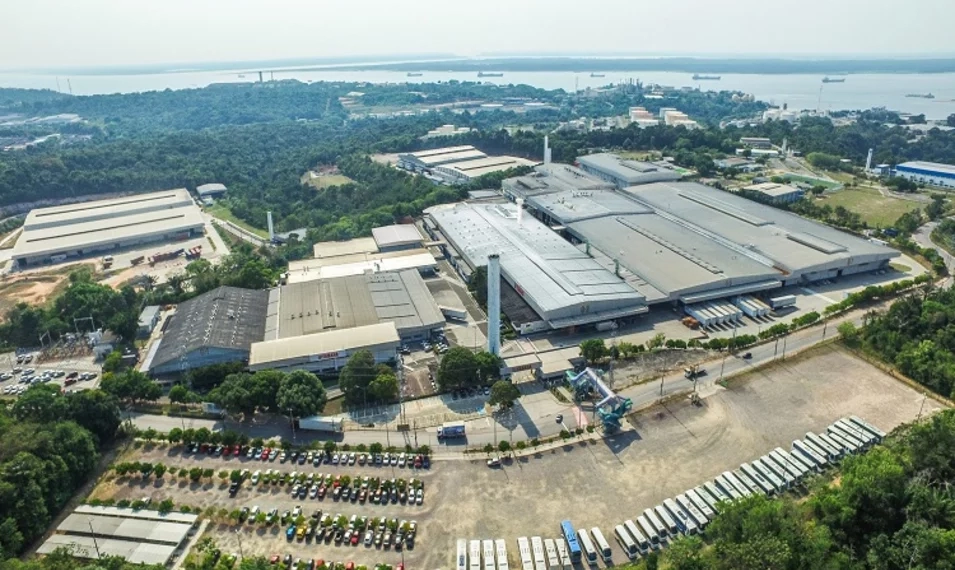
Brazil , May 2, 2023
Yamaha amplia estabilidade e controle da infraestrutura de rede de sua fábrica em Manaus com o apoio da Logicalis
Projeto garantiu à companhia mais robustez, agilidade e segurança na estrutura que comporta mais de 2 mil usuários e mais de cem aplicações rodando simultaneamente

Brazil , Apr 13, 2023
Logicalis implementa segundo fator de autenticação em órgão de justiça
Órgão tinha o desafio de adotar uma solução de MFA em seus sistemas a fim de mantê-los ainda mais protegidos.

Brazil , Mar 29, 2023
Logicalis inicia projetos de segurança para aprimorar processos de manuseio e proteção de informações em varejista
A varejista conta com a Logicalis para diversas iniciativas voltadas a proteção de seu ambiente. Confira!

Brazil , Mar 28, 2023
Fabricante de motocicletas diminui custo operacional ao criar conteinerização de aplicativos na Azure
A empresa tinha a demanda de tornar o seu ambiente ainda mais escalável e resiliente.

Brazil , Mar 28, 2023
Logicalis implementa solução de verificação silenciosa e simplifica o acesso a aplicativos de clientes de uma operadora
A empresa tinha a demanda de simplificar o acesso a aplicativos que exigem um segundo fator de autenticação.

Brazil , Mar 27, 2023
Logicalis implementa solução de governança de dados para empresa de saúde animal
Companhia tinha o desafio de implementar uma solução capaz de classificar todos os seus dados, mostrando para as áreas de negócio como as informações eram trocadas, dentro e fora da companhia

Brazil , Mar 24, 2023
Solução de data analytics reduz tempo de atendimento no lançamento de exames em hospital
O hospital tinha o objetivo de melhorar a experiência dos pacientes no agendamento de exames presenciais.

Brazil , Mar 23, 2023
Empresa de seguros inicia sua jornada para nuvem e reduz custos operacionais de TI
A companhia tinha o desafio de migrar para a nuvem a fim de reduzir seus custos operacionais de TI e ter um ambiente mais escalável.

Brazil , Mar 22, 2023
Assessment Logicalis prepara empresa de Telecom para sua jornada na nuvem
A companhia queria ter uma visão objetiva dos custos e dos resultados de ter seu ambiente na nuvem. Para isso, a companhia contou com o apoio da Logicalis.

Brazil , Mar 15, 2023
Logicalis consolida parque de storage de instituição líder em crédito ao consumidor
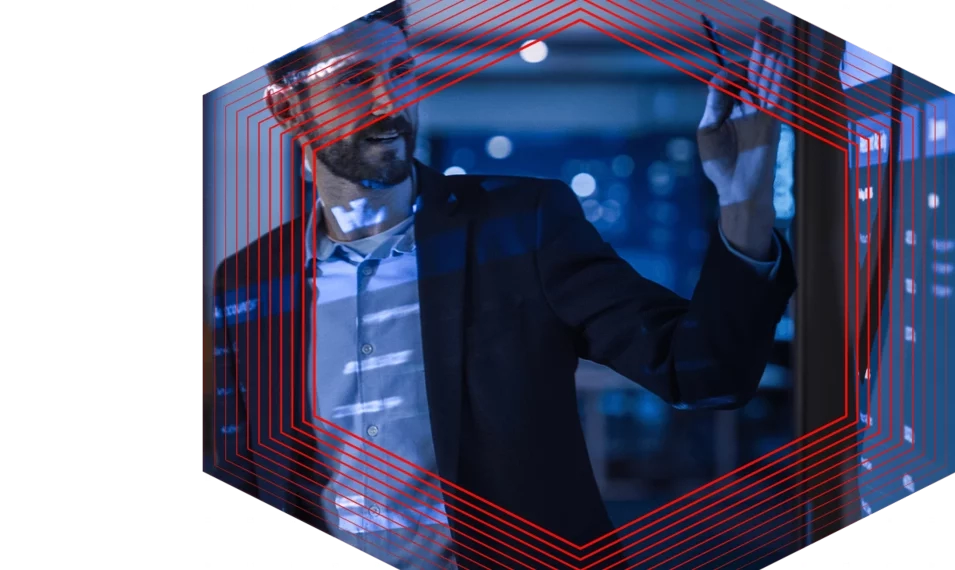
Brazil , Mar 2, 2023
Solução de governança de dados da Logicalis apoia a automatização de análise de informações de Órgão de Justiça
A fim de obter um gerenciamento único e centralizado de sua base de dados, o órgão de justiça contou com o apoio da Logicalis para desenvolver uma solução de inteligência artificial.

Brazil , Feb 28, 2023
Gigante varejista protege operação de ataques cibernéticos e roubo de dados com Logicalis
A varejistas tinha o desafio de ampliar a segurança da informação em seu ambiente operacional, protegendo a corporação de ataques cibernéticos, roubo e vazamento de dados estratégicos.

Brazil , Feb 16, 2023
Banco privado migra operação de storage do Chile para Brasil com Logicalis
Banco estava em sua jornada de internacionalização na América Latina e contou com o apoio da Logicalis

Brazil , Feb 9, 2023
Logicalis implementa soluções de rede e segurança em grande distribuidora de energia
Uma grande distribuidora de energia tinha a demanda de encontrar um parceiro que não apenas entregasse os roteadores, switches e firewalls para conectar a rede, mas que também realizasse os serviços de implementação com design lógico e físico da rede
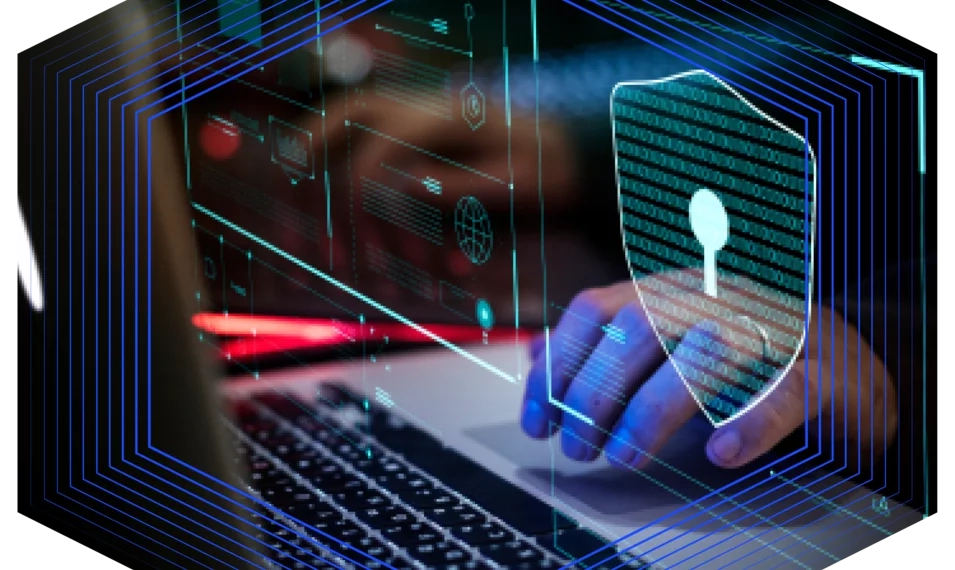
Brazil , Feb 1, 2023
Logicalis implementa SOC em grande cooperativa de assistência médica
A empresa decidiu ampliar e sofisticar sua estratégia de segurança da informação, com m serviço que fizesse o monitoramento de todo o seu ambiente de TI.
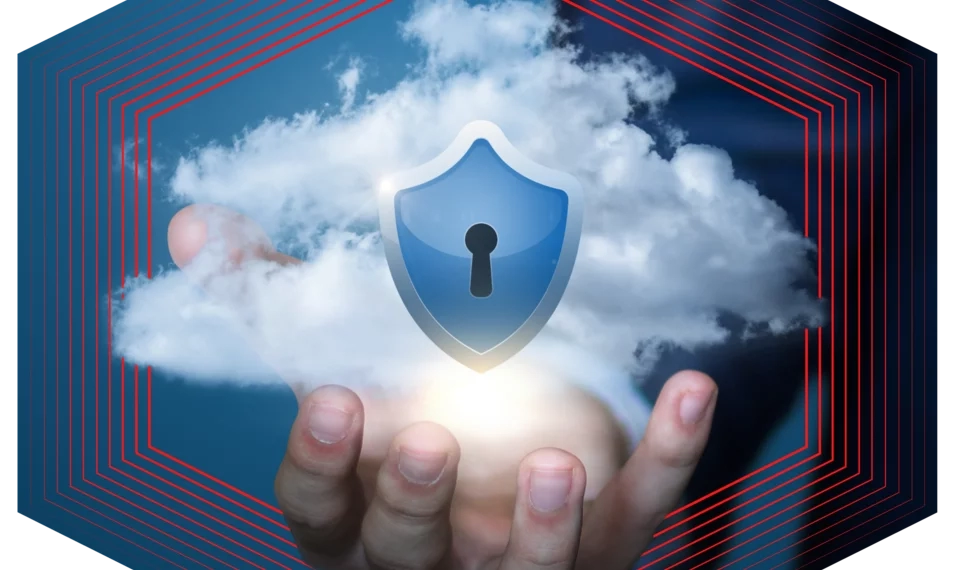
Brazil , Jan 24, 2023
Logicalis implementa solução de segurança na nuvem para grande fabricante de alimentos
Em pleno processo de migração de suas principais aplicações para a nuvem, a companhia precisava implementar os recursos de segurança nativos da Microsoft Azure.

Brazil , Jan 17, 2023
Solução de gerenciamento de infraestrutura amplia olhar estratégico de instituição financeira
A instituição financeira tinha como objetivo ter uma plataforma que pudesse dar os subsídios necessários para seu planejamento estratégico.
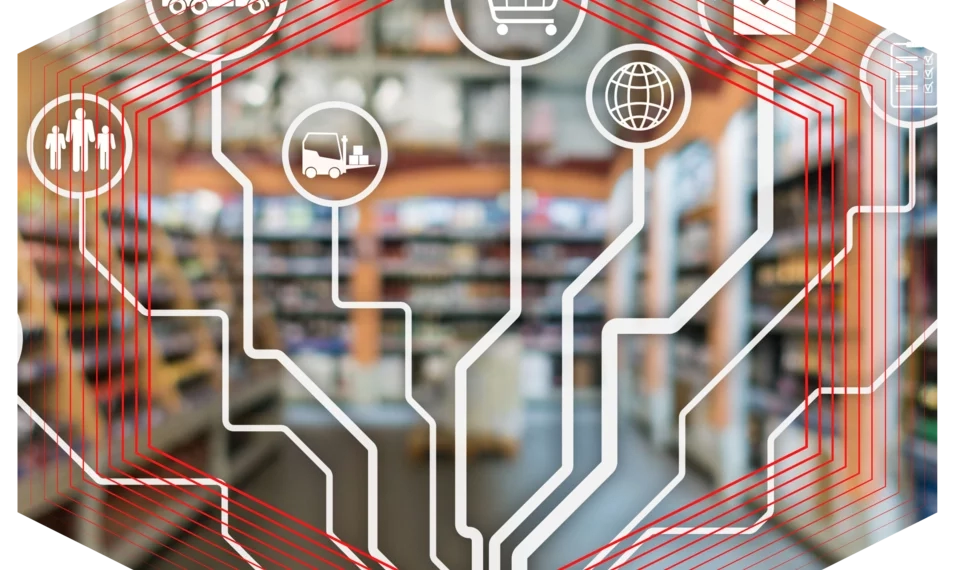
Brazil , Jan 10, 2023
Logicalis migra ambiente de 382 lojas de uma das maiores redes de farmácias do Brasil
A empresa tinha o desafio de integrar os ambientes de segurança e conectividade das novas unidades adquiridas.

Brazil , Jan 5, 2023
Logicalis desenha arquitetura de nuvem de grande prestador de serviços automotivos brasileiro
A empresa iniciou recentemente o desenvolvimento de uma plataforma de atendimento ao consumidor baseada na nuvem Azure e contou com o apoio da Logicalis
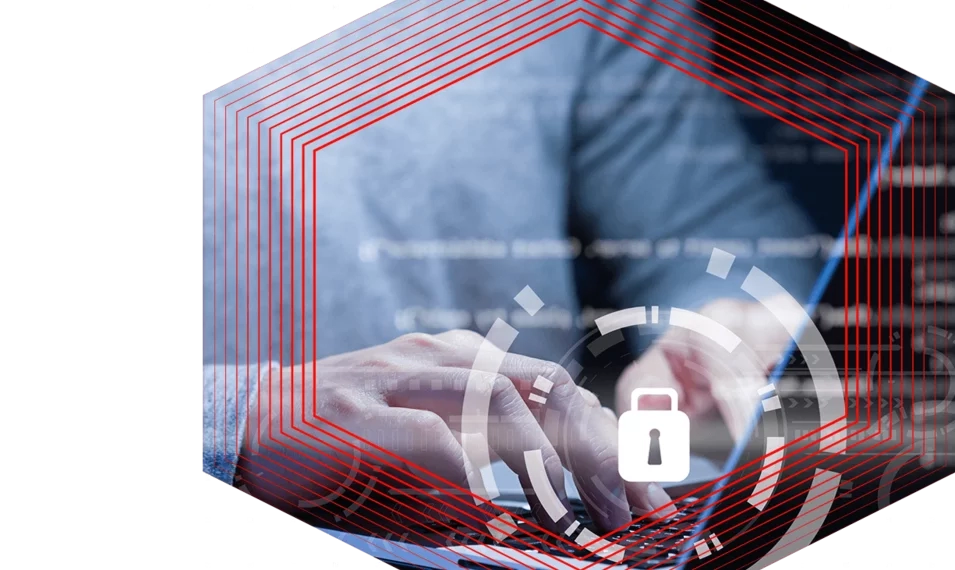
Brazil , Dec 13, 2022
Logicalis implementa SOC em uma das maiores redes de estacionamentos privados do Brasil
Para garantir a disponibilidade do serviço 24x7, a empresa precisava de um sistema de segurança que permitisse o monitoramento centralizado de milhares de usuários dispersos geograficamente.

Brazil , Nov 15, 2022
SKF moderniza sua infraestrutura na nuvem em parceria com a Logicalis e a Kumulus
, Jun 29, 2022
Logicalis implanta infraestrutura na nuvem para uma das líderes em telecomunicações do mercado
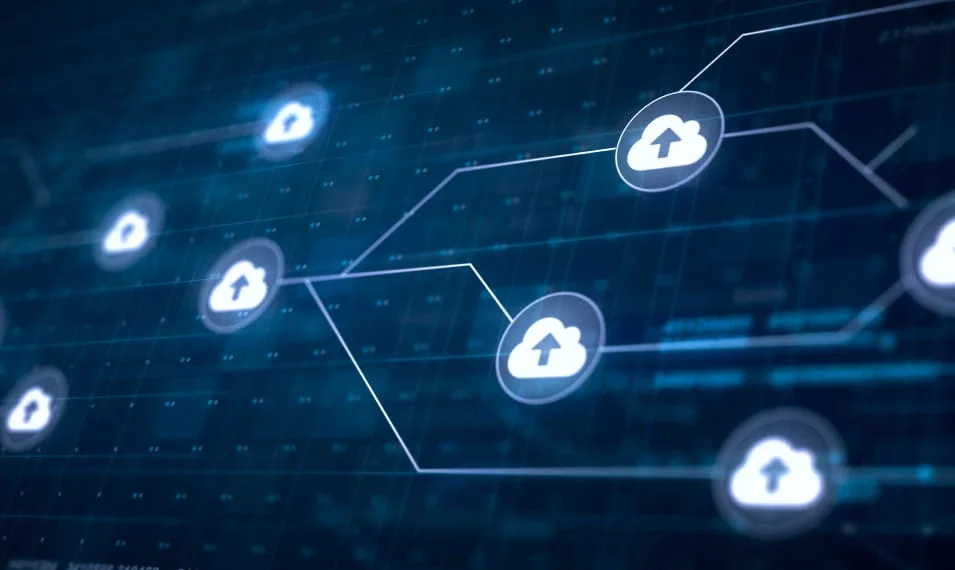
Brazil , Jun 28, 2022
Banco privado acelera modernização e migração para cloud com Logicalis e AWS
, Jun 21, 2022
Logicalis implementa sinalização de rede 5G para grande operadora brasileira
, Jun 7, 2022
Logicalis ajuda grande varejista brasileiro na conversão de suas lojas
, May 31, 2022
Logicalis implementa sistema de telefonia por software em grande rede de restaurantes
, May 24, 2022
Logicalis renova suporte de base Cisco de uma das maiores processadoras de soja do Brasil
, May 17, 2022
Grande banco brasileiro migra máquinas virtuais e economiza R$2 milhões mensais
, May 10, 2022
Logicalis integra Cisco Webex e Microsoft Teams em um dos maiores operadores portuários do país
, May 3, 2022
Um dos maiores bancos privados do Brasil automatiza segurança com alta tecnologia
, Apr 26, 2022
Logicalis faz refresh de storage de grande fornecedor de serviços de TI
, Apr 19, 2022
Logicalis atualiza estrutura de big data de grande banco brasileiro e assume seu suporte
, Apr 13, 2022
Seguradora se prepara para o futuro com infraestrutura hiperconvergente
, Mar 22, 2022
Indústria de alimentos centraliza gestão e monitoramento de dispositivos e servidores com apoio da Logicalis
, Mar 15, 2022
Varejista renova ambiente de data analytics e reduz os custos de processamento de dados
, Feb 24, 2022
Logicalis desenvolve Data Lake para líder em gestão de planos de saúde para empresas
, Feb 17, 2022
Logicalis define estrutura de rede de uma das maiores empresas agrícolas do país
, Feb 9, 2022
Logicalis atualiza parque de firewalls de uma das maiores operadoras de TV a cabo do Brasil
, Feb 2, 2022
Logicalis desenvolve landing zone para uma empresa de soluções de pagamento
, Jan 26, 2022
Assessment da Logicalis ajuda a definir investimentos de gigante do setor automobilístico
, Jan 18, 2022
Logicalis assume expansão de infraestrutura de rede de um grande banco digital
, Jan 11, 2022
Com novo storage implementado pela Logicalis, grande banco melhora experiência do cliente
, Dec 14, 2021
Importante fabricante de veículos redefine infraestrutura rumo à Indústria 4.0
, Nov 30, 2021
Grande distribuidora de suprimentos para escritório prepara-se para IPO apoiada em solução AWS
, Nov 18, 2021
Modernização e serviços gerenciados aumentam a disponibilidade e reduzem custos
, Nov 16, 2021
Tradicional empresa brasileira de higiene e limpeza alinha-se à LGPD com a Logicalis
Brazil , Nov 10, 2021
Logicalis e AWS suportam rede de supermercados no gerenciamento de seu ambiente virtual
, Nov 3, 2021
Logicalis moderniza storage de um dos maiores fabricantes de pneus do Brasil
, Oct 26, 2021
Logicalis assume monitoramento de rede de um dos maiores grupos de medicina do país
, Oct 19, 2021
Logicalis mapeia 100% do fluxo de sistema core de grande varejista brasileira
, Oct 13, 2021
Logicalis monitora ambiente de colaboração de um dos maiores escritórios de advocacia do Brasil
, Oct 5, 2021
Rede de supermercados reduz custos e moderniza gestão de tecnologia com outsourcing de serviços
, Sep 30, 2021
Um dos maiores escritórios do país conta com o apoio da Logicalis para adequação à LGPD
, Sep 14, 2021
Logicalis atualiza solução de segurança de uma das maiores empresas de informação financeira do Brasil
, Sep 8, 2021
Logicalis auxilia fabricante de automóveis de luxo a modernizar sua rede tecnológica
, Aug 30, 2021
Instituição sem fins lucrativos leva Wi-fi a mais de 40 escolas em comunidades carentes com tecnologia Cisco
, Aug 24, 2021
Uma das maiores redes varejistas do Brasil agiliza a tomada de decisões ao migrar dados comerciais para a nuvem
, Aug 16, 2021
Logicalis implementa solução de APM e operadora de telecom aprimora qualidade do serviço
, Aug 9, 2021
Logicalis implementa Microsoft Dynamics a um dos maiores grupos varejistas do Brasil
, Aug 2, 2021
Logicalis desenvolve roadmap de transformação digital em uma das maiores produtoras de fertilizantes do Brasil
, Jul 26, 2021
Logicalis garante a segurança de uma das primeiras redes elétricas inteligentes do Brasil
, Jul 21, 2021
Banco digital moderniza conectividade com cloud pública para suportar crescimento e chegada do Pix
, Jul 15, 2021
Logicalis implementa solução SD-WAN e garante gestão centralizada a indústria química
, Jul 7, 2021
Com solução SDN, Logicalis moderniza data center de uma das maiores concessionárias de energia do Brasil
, Jun 28, 2021
Editora brasileira centraliza armazenamento de dados, aprimora relatórios e dá mais agilidade à tomada de decisões
, Jun 24, 2021
Varejista adota Microsoft Teams para viabilizar trabalho remoto na pandemia
, Jun 23, 2021
Logicalis lidera projeto, implementação e gestão de Lojas Autônomas com varejista
, Jun 21, 2021
Indústria de alimentos e logística define estratégia de segurança com apoio da Logicalis
, Jun 10, 2021
Empresa de pagamentos automáticos de pedágios e estacionamentos amplia capacidade de atendimento com auxílio da Logicalis
, Jun 8, 2021
Com apoio da Logicalis, complexo hospitalar brasileiro adota infraestrutura hiperconvergente
, Jun 2, 2021
Logicalis suporta renovação do ambiente Microsoft de uma das maiores fabricantes de automóveis do Brasil
, May 25, 2021
Logicalis desenha e implementa solução de telefonia IP para 50 mil ramais de grande banco brasileiro

Brazil , May 17, 2021
IoT garante manutenção preventiva na fábrica da Renault Brasil
, Apr 30, 2021
Empresa do setor contábil ganha escalabilidade, disponibilidade, agilidade e segurança ao migrar para nuvem
, Apr 30, 2021
Um dos maiores bancos privados do país inicia jornada de nuvem com solução AWS
, Mar 19, 2021
Orquestração e gestão do projeto na implementação de Rede LTE privada em uma mineradora
, Mar 18, 2021
Soluções de Backup e Storage escaláveis e eficientes para uma multinacional fabricante de equipamentos e ferramentas
, Mar 17, 2021
Virtualização em ambiente Cloud para uma empresa de telecomunicações
, Feb 18, 2021
Gestão de segurança escalável em uma grande empresa de Healthcare nacional
, Feb 17, 2021
Trazendo a empresa para dentro de casa: solução de telefonia e colaboração em home-office para empresa de varejo de roupas
, Feb 3, 2021
Gestão, acessibilidade e performance de rede: solução SD-WAN em uma rede de medicina diagnóstica
, Feb 3, 2021
Agilidade e performance no refresh da arquitetura de redes em uma empresa de planos odontológicos
, Jan 29, 2021
Tecnologia de monitoramento para segurança do trabalho em uma empresa de logística
, Jan 28, 2021
Estrutura tecnológica completa para lojas de uma grande rede de cosméticos
, Jan 13, 2021
Solution Assessment Logicalis ajuda cliente a reduzir até 3 milhões de dólares na migração de ambiente SAP para Azure
, Jan 5, 2021
Storage All-Flash para varejo de papelaria e materiais de informática
, Nov 19, 2020
Migração para a nuvem com excelência: conheça a atuação da LOGICALIS com a primeira fabricante de motocicletas do Brasil
, Nov 10, 2020
Ambiente digitalizado em capacidade total: todos os benefícios do wi-fi público em uma rede supermercados
, Oct 22, 2020
Monitoramento de sistemas e inteligência operacional para cooperativa na área de saúde em SP
, Oct 19, 2020
Consultoria e Service Desk da Logicalis auxiliam a Gesto na melhora de atendimento aos seus funcionários
, Sep 29, 2020
Infraestrutura e suporte tecnológico completo para um Instituto de tratamento clínico e pesquisa
, Jul 8, 2020
DevOps para ambiente de produção garante autoscalling e traz mudança cultural
, Aug 28, 2019
Consultoria da Logicalis auxilia empresa do setor elétrico a analisar o mercado para tomadas de decisões mais assertivas
, Mar 1, 2019
Com solução SD-WAN, grande rede de lojas de acessórios e roupas reduz custos e ganha flexibilidade para seus negócios
, Feb 11, 2019
Rede de supermercado melhora a satisfação dos clientes com mudança na logística das etiquetas
, Feb 5, 2019
Logicalis é a parceira da BHIP para desenvolver tecnologias de smart cities em Belo Horizonte
, May 3, 2018
Coopercitrus desenvolve portal do cooperado com serviços tecnológicos agrícolas
, Mar 8, 2018
Um dos maiores co-workings da América Latina escolhe a Logicalis para prover maior controle de rede
, Jan 23, 2018
Operadora de infraestrutura urbana aposta em solução de IoT para coleta de lixo inteligente
, Feb 22, 2016
Com consultoria da PromonLogicalis, INTO ganha inovação e qualidade nos processos de TI
, Feb 22, 2016
Com consultoria da PromonLogicalis, INTO ganha inovação e qualidade nos processos de TI
, Dec 1, 2015
Com novo data center, grupo hospitalar ganha agilidade no seu ambiente de TI
, Dec 1, 2015
Com novo data center, grupo hospitalar ganha agilidade no seu ambiente de TI
, Jun 9, 2015
Com serviços da Logicalis, distribuidora de energia otimiza a gestão de segurança
, Feb 9, 2015
Internet gratuita ajuda grande empresa de varejo a aprimorar relacionamento com cliente
, Feb 9, 2015
Internet gratuita ajuda grande empresa de varejo a aprimorar relacionamento com cliente
, Sep 22, 2014
Empresa ganha agilidade e controle de rede com serviços da PromonLogicalis
, Sep 22, 2014
Empresa ganha agilidade e controle de rede com serviços da PromonLogicalis
, Jul 30, 2014
Empresa de pagamentos eletrônicos assegura disponibilidade de rede com serviços gerenciados da PromonLogicalis
, Jul 30, 2014
Empresa de pagamentos eletrônicos assegura disponibilidade de rede com serviços gerenciados da PromonLogicalis
, Apr 29, 2014
PromonLogicalis provê serviços gerenciados e soluções de rede para empresa de construção
, Apr 29, 2014
PromonLogicalis provê serviços gerenciados e soluções de rede para empresa de construção
, Apr 24, 2014
Grande banco brasileiro investe em solução de conectividade de alta performance
, Apr 24, 2014
